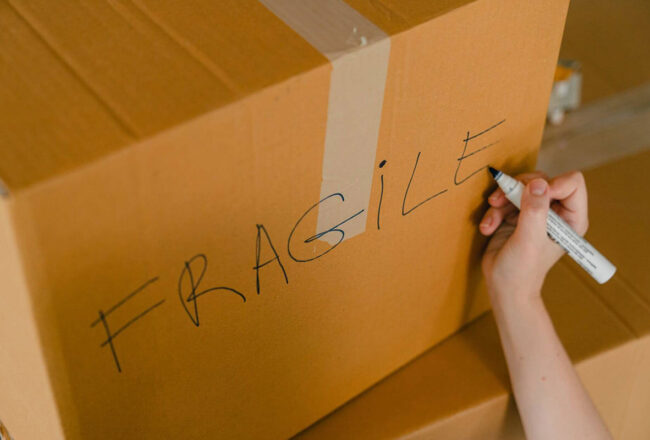Whether your reasons to move are, moving state to state can be an expensive endeavor. But with some careful planning and strategizing, you’ll be able to move without breaking the bank. Luckily, all you have to do is follow our guide on how to save money to move and make this process more affordable.
If you’re planning to move interstate, you’ll need to start saving money as soon as possible. Begin with making a budget and cutting back on unnecessary expenses, but also create a savings account and make regular deposits. Also, ensure to invest in a good relocation company. Try to declutter and use affordable packing supplies as well, since it can help you reduce relocation costs.
How Much Money Do You Need to Save Up Before the Move – and Why?
A number of factors will affect how much money you’ll need to have saved, including the cost of living in your new location, the cost of an interstate move, and whether you’ll need to find a new job once you arrive. That is why the first thing on your to-do list needs to be creating a relocation budget. Consider all of the expenses you’ll have, both one-time and ongoing, and estimate how much each will cost.
A rule of thumb is to have at least three months’ worth of living expenses saved up before you make a move. This will give you a cushion in case you need to find a new job or have any other unexpected expenses. If you don’t already have that kind of funds waiting in your bank account, it means you’ll need to brush up on your saving skills.

Make the Plan of Action
Setting saving goals and a deadline is the next step after calculating your budget. That way, you’ll know exactly how much money you’ll need to set aside each month to reach it. You can choose to save up the amount you’ll need to perform a DIY move or add a bit more to your savings and get long-distance moving services. Although you’ll need fewer resources if you’re relocating on your own, keep in mind that the more professional help you have, the better the chances of achieving a stress-free move.
Additionally, make sure you include a savings segment in your spending plan and try to save money up to a level you think is possible. Eventually, aim to increase your savings and set aside 15–20% of your income.
Take Care of Your Debt as Much as Possible Before Moving Interstate
Many people neglect how much they spend on debts on a monthly basis – and it’s a good place to start when you want to save up. After you are no longer obligated to pay interest on your credit, you can put that cash into savings. Not only that, but with lower general debt, you’ll be able to find a better place after relocating to a new city since your credit score will improve. Even if you’re not able to pay off the entire credit (such as student debt), you can agree with a creditor to pay manila monthly installments until you save up and move.
Know That Sometimes You’ll Need to Spend in Order to Save
There are some costs that are worth incurring in order to save money in the long run. For example, it may be worth paying for a higher quality item that will last longer or investing in energy-saving appliances.

When Saving Money to Move, Track Your Spending
One of the first steps of saving money to move to a new home is to crunch numbers and calculate the current spending. Keep track of every dollar you spend, including normal monthly expenses, as well as purchases for groceries, as well as coffee, and other items. You can keep track of your spending using a pen and paper, a simple spreadsheet, an app, a free online tool, or any other method that is most practical for you.
Once you have your data, sort the amounts into categories like “mortgage,” “gas,” and “food,” then add up each amount. This can help you determine where you can make savings and where your money is going each month.
Cut Spending Whenever You Can
If you aren’t able to save as much money as you would need, it could be time to make spending cuts. Determine the non-essentials you can do without. Look for cost-effective solutions on your set monthly bills as well, such as your cell phone plan and auto insurance. Other suggestions for reducing daily spending include:
- Enjoying free activities – there are plenty of things to do that don’t cost any money, and they can be just as fun as paid activities. You can visit a local park and have a picnic, go for a walk or hike, visit a museum on free or discounted days, or attend festivals.
- Saying goodbye to recurring charges – make sure to cancel or pause your recurring charges, so you don’t have to pay for them anymore. Anu membership and subscription you don’t need or use at the moment should be canceled. Pay special attention to those that renew automatically.
- Cooking more – home-cooked meals are usually cheaper and healthier than buying food from a restaurant or take-out. If you’re not used to cooking, trying new recipes or figuring out how to cook simple meals can be daunting. But there are plenty of resources available to help you get started.
- Not buying impulsively – It’s easy to get caught up in the moment and spend more money than you intended. To avoid this, take a step back and think about what you really need before making a purchase. If you can wait a few days to make a decision, do so. This will give you time to think about whether or not the item is worth the price.
Declutter as Much as You Can and Sell the Unwanted Items
If you’re getting professional help when organizing a move, keep in mind that the more things you bring, the more you’ll have to pay. That is why decluttering is one of the most effective ways of reducing relocation costs. Here are some questions to ask yourself when purging through your household inventory list:
- Do I use this item regularly? If not, can I live without it?
- Does this item bring me joy? If not, why am I holding on to it?
- Is this item in good condition? If not, would it be worth repairing or replacing?
- Do I have a place to store this item? If not, is it worth finding a place for it?
- Is this item worth the money I paid for it?
Once you decide what to keep when relocating, you should make separate piles of items you’re leaving behind. Some of them will need to be recycled and thrown away, and some you can donate to the Salvation Army or other charities. Still, note that you can earn extra money if you decide to sell some of your belongings that are still in good condition.
There are many online marketplaces that allow you to sell your used items. Some popular ones include eBay, Craigslist, and Amazon. You can also take your used items to local consignment shops. They will often sell the items for you and take a percentage of the sale price. Of course, you can also have a garage sale – it’s a perfect option when you have a lot of stuff to sell and not enough time. Take a look at some useful tips on how to organize a successful yard sale in the video below:
Use Affordable or Free Packing Materials
Getting packing services is an excellent way to move efficiently. However, if you’re on a tight budget, you may have to pack dishes, furniture, appliances, and other belongings by yourself. In order to do so correctly, you’ll need to gather different packing materials. Here are some of the ways you can get them without spending a fortune:
Check with local stores for free boxes
Your neighborhood grocery store, bookstore, or liquor shop might have some boxes put aside for you if you ask. At the same time, large boxes are commonly used for packaging furniture. The majority of those will be discarded afterward, so make sure you ask the employers of a furniture shop if they have some to spare.
Ask your friends ad family if they have packing supplies you can use
You might be surprised at how many people have boxes of different sizes just lying around their homes. Additionally, some of them may have moved recently and can provide you with quality materials such as bubble wrap or packing paper.
Pack by using supplies you can find in your home
Plastic containers, suitcases, or even garbage bags can be a good substitute for boxes – and you probably have some in your home already. Also, keep in mind that pillowcases, linens, towels, and cotton clothes can provide good protection for your belongings. You can even pack fragile items with their help – all you have to do is learn a few relocation day tips on how to do it properly.
Check online marketplaces
When organizing packing to move, note there are many online marketplaces where you can find affordable packing supplies. You can check websites like Craigslist, eBay, and Amazon for good deals on boxes, tape, bubble wrap, and other packing materials. Check sites such as Freecycle, where people post the items they no longer need – including boxes and other materials.
Think About More Affordable Moving Options When Considering How to Save Money to Move
There are a lot of different ways to move, and some of them are more affordable than others. For example, if you can do a part of the moving tasks by yourself, you can save a lot of money on labor costs. If you plan on getting packing services, for example, you can decide to let professionals pack glasses and other breakables while you deal with other, simpler-to-pack belongings.
Of course, there are other ways to save up a bit. For example, you can look for discounts on rental trucks or find a company that offers affordable storage units, or you can ask friends and family to help with the move. Still, one of the best answers on how to save money on moving costs is to plan an off-season move. Relocating in the summer is the most expensive option since it’s the peak of the season. If you’re looking for the cheapest way to move out of state, work your way around it and choose a date between October and March.
Why Shouldn’t You Hire Exceptionally Cheap State-To-State Movers to Relocate Your Items?
Suspiciously affordable movers are often inexperienced, which could lead to a less-than-smooth move. If you hire cheap movers, you may end up paying more in the long run if they damage your belongings or lose them during the move. But that is not all! Low initial quotes are often a part of different relocation scams – you will hire movers based on a low estimate, only to be billed with numerous additional fees. To avoid added anxiety about relocation, it’s always better to hire a truly reputable and reliable relocation company, even if it costs a bit more than what you’d wish.
The More Money You Save Before Interstate Moving, the Better Relocation Experience Awaits
Interstate relocation is always a big deal. It’s expensive, time-consuming, and can be emotionally draining. But if you take the time to plan ahead, prepare for relocation day and save up, your experience will be much smoother – and you’ll have a lot more money to spend on other things. Additionally, with enough money saved up, you’ll be able to leave many daunting tasks to professional movers while you focus your attention on settling into your new home.














